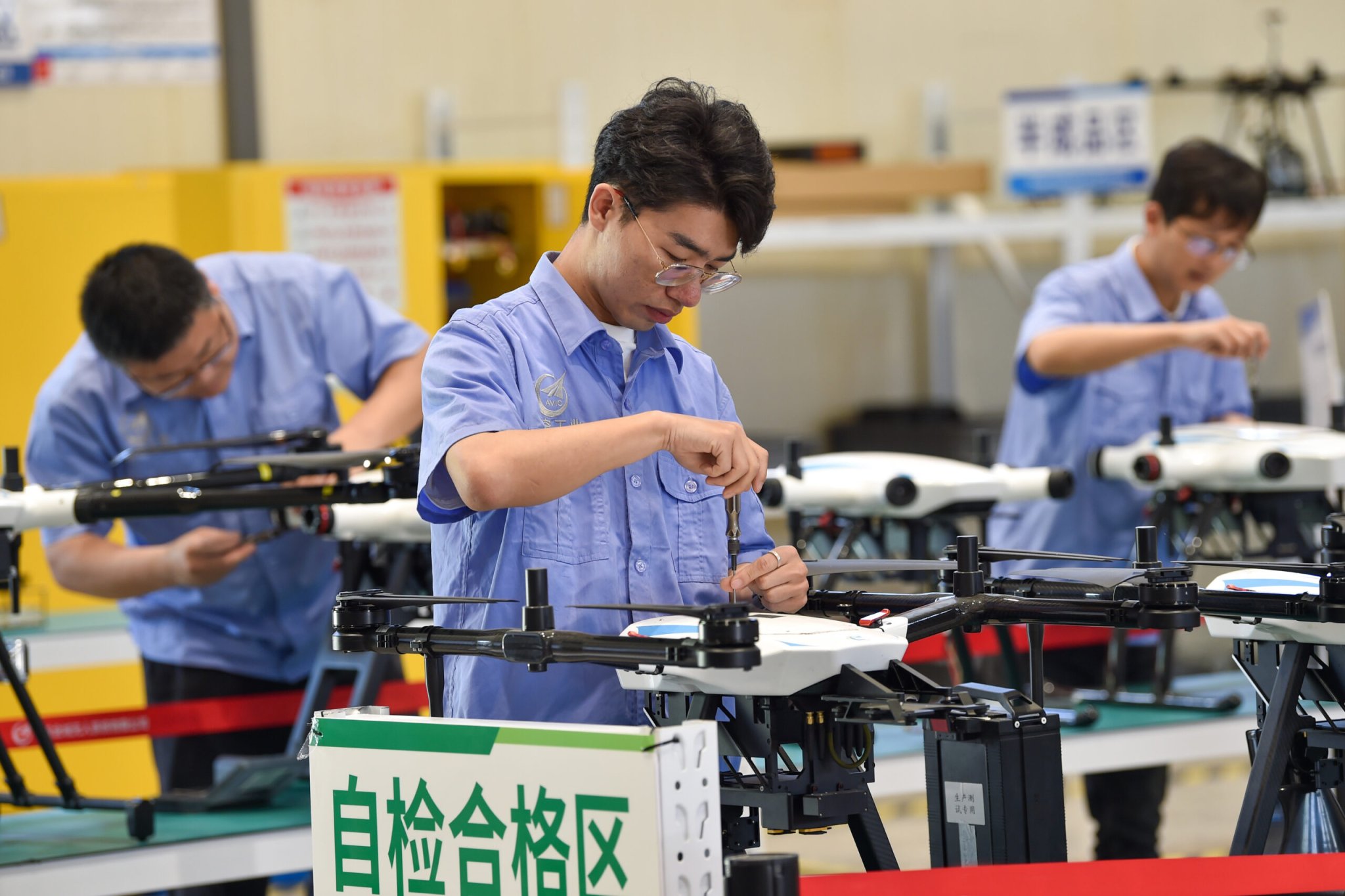

China’s supply to Russia has been one of the “key factors” in gaining momentum on the battlefield with its war in Ukraine, top U.S. intelligence officials told Congress Thursday.
“China’s provision of dual-use components and material to Russia’s defense industry is one of several factors that tilted the momentum on the battlefield in Ukraine in Moscow’s favor,” U.S. Director of National Intelligence Avril Haines testified to the Senate Armed Services Committee at a hearing on worldwide threats. Chinese goods, Haines said, are “also accelerating a reconstitution of Russia’s military strength after their extraordinarily costly invasion.”
The threat of Russia substituting Chinese goods — and that country’s deep industrial base — for its mostly-decayed arms industry has been an ongoing U.S. concern. In March 2022, two weeks after Russia’s invasion of Ukraine, President Biden warned Chinese President Xi Jinping not to provide “material support” for Russia’s war in Ukraine.
Last week, Secretary of State Antony Blinken said that China was “overwhelmingly the No. 1 supplier of critical components” to Russia’s military industrial base, supplying machine tools, microelectronics, optics, and other equipment going into the production of munitions, of weaponry, of tanks, of armored vehicles.
However, most of the Chinese aid has been carefully chosen to have a plausible civilian use.
The Chinese government has tried “to avoid what is characterized as lethal support [like] a fully constructed gun or weapon system, etc. to Ukraine,” Haines told Senators.
“That has been something that they’ve maintained,” she said regarding the Biden Administration’s “red line” on sending defense materials to Russia. Instead, China has supplied Russia with dual use materials, like nitrocellulose for example, which Haines said are critical inputs for Russia’s “reconstitution of the defense industry.”
Nitrocellulose is a raw material used in both the civilian and defense world. The compound can be used in the production of propellants, ammunition and civilian explosives, according to Rheinmetall, a German-based defense and commercial technology supplier.
Subscribe to Task & Purpose today. Get the latest military news and culture in your inbox daily.
An April report by the Center for Strategic and International Studies, a Washington D.C. think tank, found a “significant shift” in the make-up of Russia’s trading partners for key military goods with prewar Western suppliers being replaced by Chinese companies.
“Despite the threat of Western secondary sanctions Chinese supplies to Russia fully replaced imports from Europe, the United States, South Korea, and Taiwan, as trade between the two countries hit a record high of $240 billion, growing 26.3% from 2022,” the report said.
The report notes specific pieces of equipment like Chinese-sourced microelectronic components found in the wreckage of Russian missiles in Ukraine, as well as millions of dollars worth of semiconductors, ball bearings, navigation equipment and fighter jet parts. CSIS also tracked Russian imports of CNC machines which are used to provide parts for various weapon systems from ammunition to aircraft, while Chinese companies experienced a “sharp increase” in the months after a meeting between Xi and Putin in March 2023.

Another problem, the report found, was that some Chinese and Hong Kong trade partners with Russia are also supplying Ukrainian firms that supply their military.
“While it is possible to sanction firms based on their connections to Russia’s defense industry and war effort, doing so could endanger ongoing Ukrainian procurement, perhaps in ways that are not at first obvious without multitiered supply chain visibility,” the report said.
Two fronts
Beyond the economic benefits of China supplying Russia with dual-use goods, intelligence officials also said they’re watching their military-to-military interactions.
“We see China and Russia for the first time exercising together in relation to Taiwan and recognizing that this is a place where China definitely wants Russia to be working with them,” Haines said.
Sen. Mike Rounds (R-SD) asked intelligence officials about the chances of a conflict with one adversary involving both China and Russia at once.
“If we were to have a conflict with one, the chances are we would have a second front,” Rounds said. “The planning that we have to do includes confrontation and not just one front now, but the capabilities, the planning equipment, manpower that would be necessary for two different fronts simultaneously, am I correct?”
Haines agreed and said it’s “a greater possibility now than what it was two or three years ago,” Haines said.
Air Force Lt. Gen. Jeffrey A. Kruse, Director of Defense Intelligence Agency said the last few years have caused the DOD to relook at its requirements on infrastructure and planning in an environment where Russia and China may be cooperating militarily even if they’re not “interoperable.”
Kruse also noted that the DOD is in the middle of revising its planning process which is multiple years long and includes a “fairly intensive vetting of what kind of operations we might want to conduct” for operations that would take into account the possibility of a two-front war.
“It just has to be taken into account whether or not we actually believe there would be two full up fronts,” he said. “That is analysis and assessments that will mature over time.”
The latest on Task & Purpose
- Army captain gives up his rank to enlist in the Marine Corps
- Army fires commander of Germany-based air defense unit
- Navy offers some sailors $100,000 to reenlist
- Army general bans most work texts after duty day
- Air National Guard officer and state senator arrested for burglary
